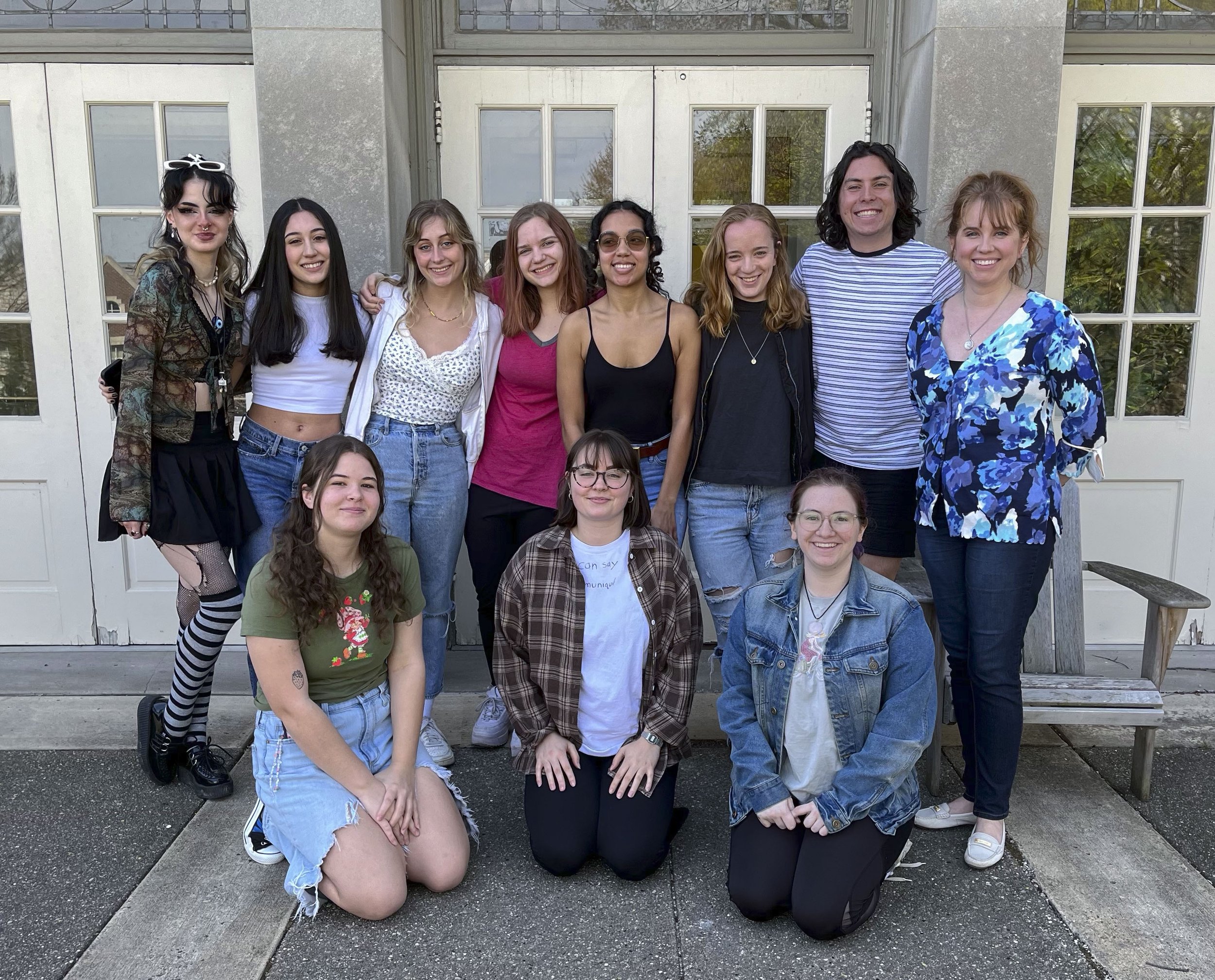What Students Get Out of Working at the Communiqué
The Communiqué staff pose for a photo in spring 2023. Top row from left: Arlo McFarland, Jade Lombardo, Madison Butina, Abigail Hakas, Jacqueline Clark, Riley Hurst Brubaker, Carson Gates, Sara Bauknecht. Bottom row from left: Jada Jenkins, Alice Crow, and Jorie Meil.
Abigail Hakas ’24 became a staff writer for the Communiqué, Chatham University’s student newspaper, quite by accident.
After submitting an opinion article about the accessibility of gender-neutral bathrooms at Chatham, she saw a title next to her byline: staff writer. It was an editing error, but Hakas took it as a call to action. “I had never joined a club on campus, so I guess this will be my club,” she thought.
Hakas, now the opinions editor at the paper, can tell you that the Communiqué is more than just a student organization for those who do writing, editing, layout, photography, and more for the biweekly broadsheet.
Some students in Chatham’s communications program can get their first stories published there during a newspaper course. Sarah Naccarato ’27, the Communiqué’s digital editor, was one of those people.
“I think writing for a paper, especially your first semester, can be scary,” said Naccarato. “But it’s a very supportive system between section editors at the Communiqué and professors, like Sara Bauknecht,” who serves as the newspaper’s faculty advisor.
Abigail Hakas is the opinions editor at the Communiqué.
Hakas, who majors in communications with a journalism concentration, said she also felt that support. She said her capstone advisor, Ryan D’Souza, pushed her in new directions with her research. And the newspaper, she said, “is friendly. Most of my friends that I’ve made [at Chatham] I’ve made working at the Communiqué.”
Naccarato is also in the communications program, where students can choose concentrations in human communication, graphic design, and public relations. Naccarato chose journalism. “I’ve never had a bad experience with it,” she said. “I have found myself, in class, being more engaged in content than when I was in high school. It’s so nice to be in classes that you enjoy. It’s so refreshing.”
As the Communiqué’s digital editor, Naccarato is in charge of running the paper’s website, making sure links are working and overseeing digital story copy, photos, and other media. Working that position has taught her about web design, the kind of thing people might not expect to learn while working at a paper.
“Student should join the Communiqué because there’s professional development opportunities—for any field,” said Bella White ’27, the paper’s editor-in-chief. Honing practical skills in communications, writing, video, and more are just a few of the perks of working alongside great people, White added.
Hakas has seen the benefits of that professional development herself with several internships under her belt thanks to a portfolio of published work in the Communiqué. “The more you work with the Communiqué, the more odd situations you get put in,” she said. People have asked her if they can be anonymous in a story or challenge the veracity of a story.
Those experiences bolstered her confidence when she had similar encounters in internships. “I had a lot of conversations [in interviews] with editors about the work I did at the Communiqué,” Hakas said. “They’d ask, ‘What’s a story you’re most proud of? What’s a story that challenged you? What was difficult to write?’ and I’d always talk about those stories I wrote for the Communiqué.”
Learn more about communications at Chatham, part of the College of Arts & Sciences, at chatham.edu.


